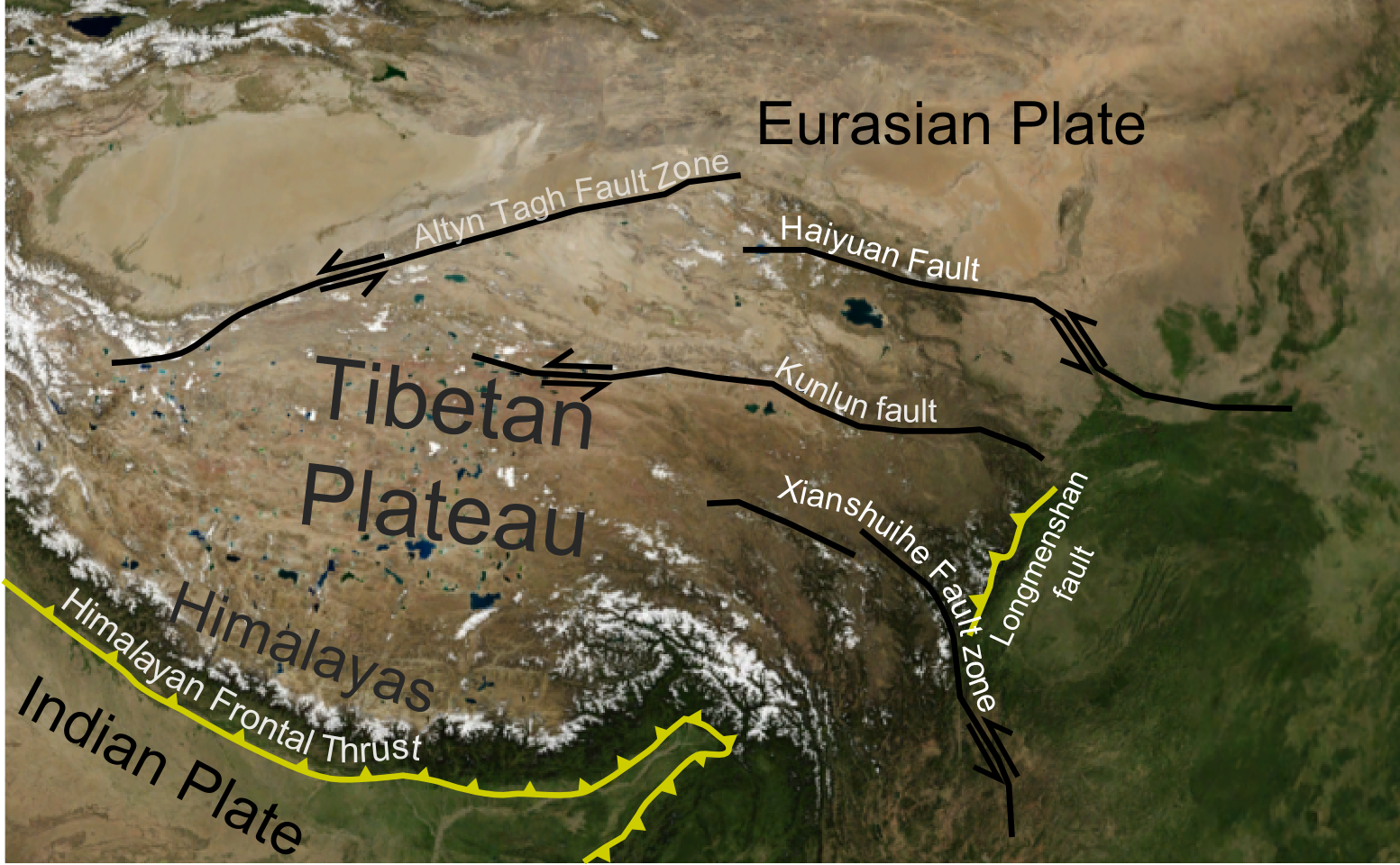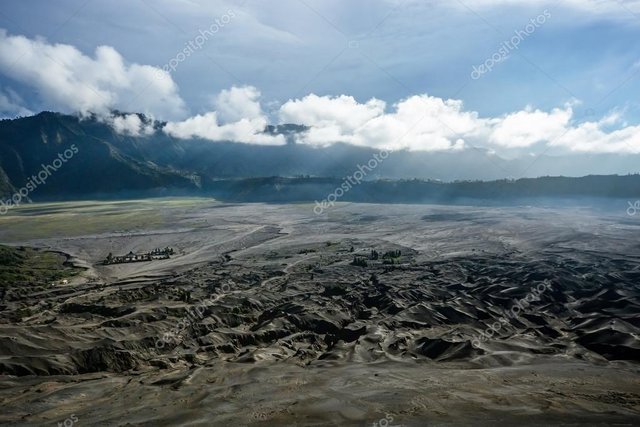Evolution of Plateaux
Plateaux is one of the major landforms which is a resultant of folding, vulcanicity, faulting, and other external forces such as denudation and deposition produce on the continent.
Plateau is an extensive highland area with generally level top and steep slopes which rise abruptly from the surrounding lowlands. It is shaped like a table, hence it is sometimes referred to as *tableland *. There exist three types of plateaux;
- tectonic plateaux
- lava plateaux
- dissected plateaux
Tectonic plateaux
When a large portion of the earth’s crust, sometimes an entire continental block, is lifted up by vertical earth movements, it forms a tectonic plateau. The African Plateau and the Arabian Plateau are very good examples.

Satellite Imagery of the Tibetan Plateau
Sometimes the Plateau may be tilted, as the Deccan Plateau of India or the Mesa Plateau of Spain, or it is surrounded by mountain ranges, usually fold mountains, when it is called inter-montane plateau.
The Colorado Plateau within the Rockies, and the Bolivian Plateau within the Andes of Southern America, are good examples of inter-montane plateaux.
Lava Plateaux
When lava erupts from a long linear vent known as fissure on the earth’s surface, it spreads out over thousands of square kilometres before cooling and solidifying. Successive fissure eruptions bring out successive sheets of such lava which build up on top of the previous ones to form a lava plateau. The best example is the Biu Plateau in the Northeastern State of Borno Nigeria. The northwest Deccan Plateau in India and the Antrim Plateau in Northern Ireland are other good examples.

Java Island, Indonesia
Dissected plateaux
When the surface of an original plateau or tableland had been attacked by weathering and cut by deep river valleys which breaks it up into smaller units, such a plateau is called a dissected plateau. The topography is rugged, the sides steep and the area becomes ridges alternating with valleys.
dissected plateau at Chapada Diamantina, Brazil
Flat topped remnants or such hills, often capped by resistant rocks are called mesas. Smaller remnants of mesas are known as buttes. An example is the Udi Hills in Enugu State Nigeria where one arm of the upfolded surface has been eroded to form a dissected plateau. The Jos Plateau in Northern Nigeria, Bandiagara Plateau in Mali and the Futa Jalon Plateau in Guinea are other good examples of dissected plateau.
Conclusion
Plateaux are great and beautiful scenery, with some having good environmental and climatic conditions, a number of vast settlements exist on the plateau.
Reference
My geomorphology lecture notes

steemstem
You received a 80.0% upvote since you are a member of geopolis and wrote in the category of "geography".
To read more about us and what we do, click here.
https://steemit.com/geopolis/@geopolis/geopolis-the-community-for-global-sciences-update-4
Excellent write up over plateaus. I briefly read about them while studying marine geology but you went into more detail than we learned about.
We talked about delta plateaus quite a bit though as they are just flat raised delta planes.
Thanks for taking your time to read.
I read a lot about geology in the past. One of the best introductions to this field I found out to be BBC's documentaries made by geologist Iain Stewart:
How Earth Made Us, How to Grow a Planet, Rise of the Continents.
Easy to watch and easy to digest for a newbie like me. And then I found myself wanting to know more :D